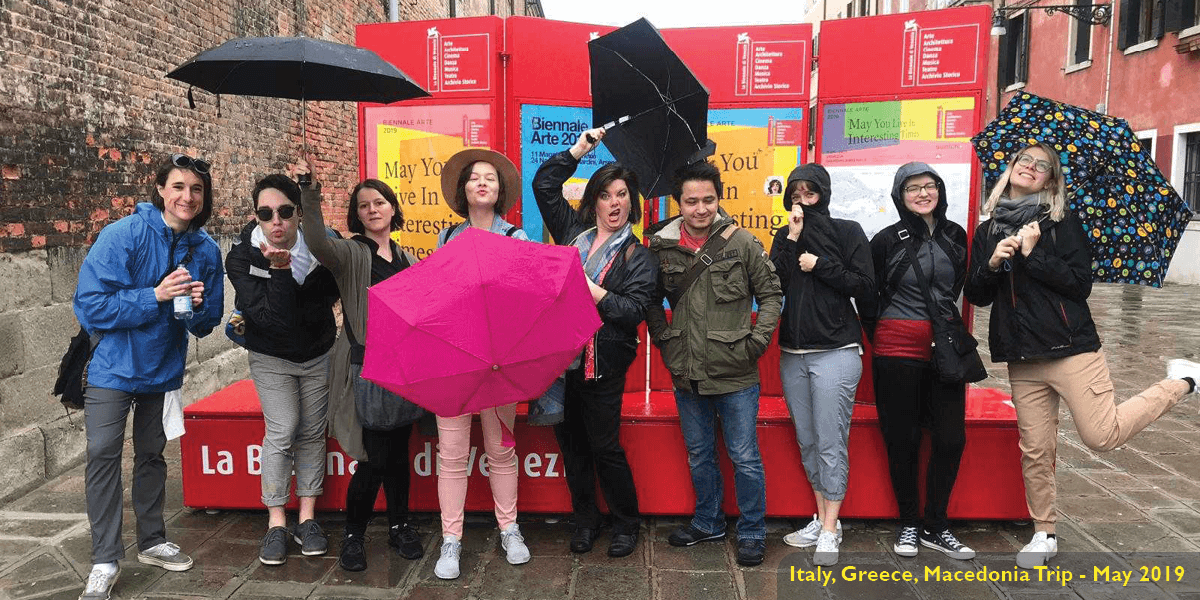Step 4: Enrollment and Recruitment of Students
Enrollment & Program Cancellation
All faculty-led programs must enroll a minimum of eight students to move forward. The OIS retains the right to lower or raise the minimum requirement on a case-by-case basis. Programs that may be more successful in meeting minimum enrollment are those that:
- Appeal to a large and diverse population of potential students.
- Offer core courses or impacted courses.
- Appeal to majors and/or student cohorts that are typically under-served and underrepresented in study abroad program offerings.
- Occur in countries or regions either not currently offered by MSUB study abroad or in attractive destinations.
- Include cost-effective housing and activities to keep the overall program cost low.
There are two points at which programs may be canceled for low enrollment: the application deadline and the deposit deadline. If a program drops below its minimum enrollment at either of these points, OIS will notify the faculty director and give the department and college the opportunity to determine if funds are available to subsidize 100% of any budget shortfalls. If funds are not available, the program will be cancelled.
As a general rule, OIS does not extend application or deposit deadlines. If the deposit deadline has passed and the minimum program enrollment has been maintained, the program will not be canceled due to withdrawals that may occur later in the semester. Students are responsible for any funds that are deposited on their behalf if they withdraw after the deposit deadline, and the charges will be applied to individual student accounts.
Recruiting Students
Promotion and recruitment are an essential part of any study abroad program. Active involvement in the recruitment process by the faculty director and sponsoring department can make all the difference in a program’s success or failure. The Study Abroad Coordinator can collaborate with the faculty leader on promotional materials and strategies, but brochures and website updates are no substitute for one-on-one faculty-to-student contact. All contracts must be complete and prices finalized with the OIS before advertising or marketing can commence. Advertising must be truthful and emphasize both the benefits, cost of the program, and relevant course information.
Informational Sessions & Promotional Events
Faculty leaders should plan to give presentations about their programs in a variety of venues during the promotional period (end of September to end of December for summer programs). When planning promotion and recruitment strategies, please keep in mind the enrollment guidelines listed at the end of this page. The faculty leader should focus on the following at promotional events:
- Inform students of the course, requirements, and academic content of the program
- Articulate connections between destination country and course content
- Talk about the cultural experiences you will incorporate into the itinerary, including a tentative program schedule
- Explain how grading works
- Explain criteria for acceptance into course and/or program (course prerequisites, language level, writing experience, lab research, etc.)
- Encourage diversity among program participants
- Share your enthusiasm for the program with prospective participants. This may include showing photos and describing the importance/relevance of the location and coursework
- Inform students of the first step in the application process, and the program application deadline
Alternative Promotional Options
The Study Abroad Coordinator and faculty leader may collaborate to recruit students for summer programs. It is the responsibility of the faculty leader to initiate marketing efforts or planning conversations with OIS. Faculty leaders can promote their program through the following promotional outlets:
- Study Abroad information sessions and tabling
- Fliers, catalogs, posters, and website (all print material must be approved by OIS)
- Class visits and other promotional activities in relevant courses (to be arranged with appropriate courses by the faculty director)
- Display cases (to be arranged in the college or department)
- Student organization meetings
- College/department newsletters or list serves
- Academic advisors
Non-MSUB Student Participation
Generally, program participants should be MSUB students or should be admitted to MSUB in conjunction with submitting a study abroad program application. Community members are permitted to apply, on a case-by-case basis but cannot be used to make up the minimum enrollment requirement; only students enrolled for the program course are able to be counted toward the minimum numbers. If minimum numbers are met, then community members are able to be considered for program participation, but only after all eligible students have been considered. Any community members must at least register to audit the course. They will also have to complete a background check and the Unaffiliated Traveler Form.

